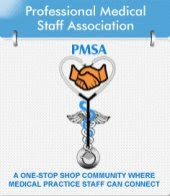Staff training is often one of the most overlooked areas in a medical practice. However, well-trained staff members are the key to providing quality care. Training can help staff members improve their skills and learn how to manage their job effectively. Good training programs offer fresh and interesting ideas for activities. Training is an important part of keeping a practice alive and healthy. They also help staff members grow as professionalsCost can be one of the biggest obstacles in training, however due to the internet and new resources often it can be done inexpensively and be creative at the same time. It helps to have a schedule and some training throughout the year. Often many practices will attempt to “cram” all of their training into a short time period before it expires. This can be especially true when it comes to required training to remain compliant, but in massive cram sessions how much will they retain and learn is questionable.
Some key areas to consider in developing a training program include:
- What training are you required by law to have in your practice setting? This can vary by the type of service that you provide, but all practices should have HIPAA, OSHA, and HR as a starting place.
- Assess the needs of the practice and staff. Talk to the staff to see what training they need and want. From the list you develop you can then go through and see what common factors develop. Make these your target areas to begin start on.
- Then look at what is available. Do you have staff that can teach some of the classes, for example is one of the staff a BLS Instructor? Would they be willing to train the staff and what equipment and resources would they require to accomplish the task? Could you pool your resources with another physician’s office? Maybe you can do the training together to save money. Does the hospital or community offer any courses?
Once you have your list of what is needed then you can start to work on a budget for the classes and start planning on the when and where aspects. In your plan be sure to include a way to evaluate and monitor the success of the training program. Good luck you are on your way to having staff that is trained and knows what they are doing!
From PMSA’s New Managers Starting 2007

No comments:
Post a Comment